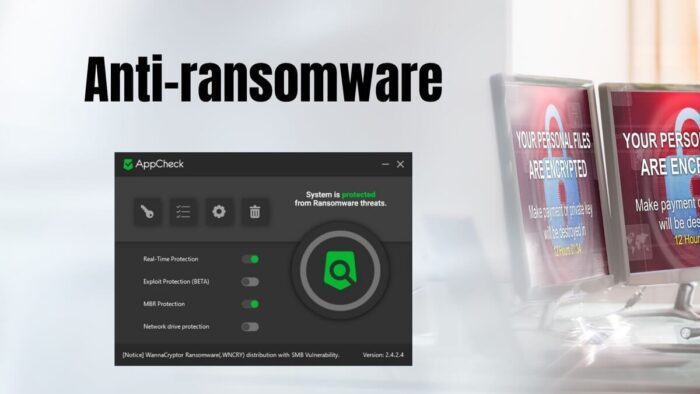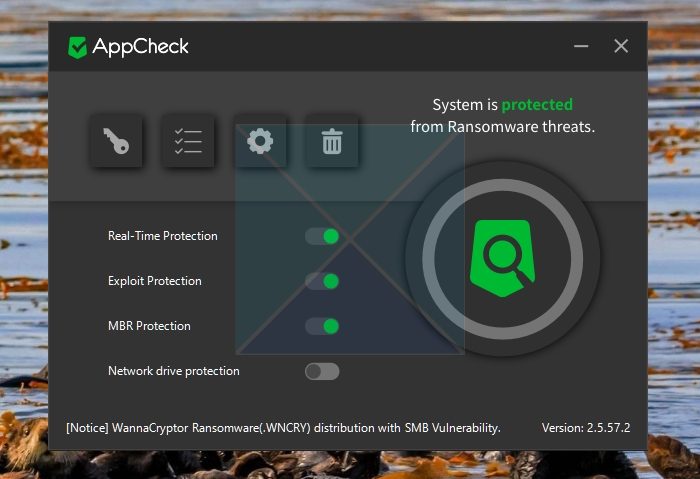While Ransomware has always been a problem, it rose to notoriety after the WannaCry ransomware attack in May 2017. Since then, protecting systems from the problem has been a priority for both system manufacturers and security experts. Several free anti-ransomware tools are available in the market – today, we will look at AppCheck Anti-ransomware.

AppCheck Anti-Ransomware
AppCheck Anti-ransomware from CheckMal prevents, detects, and recovers damaged files from ransomware with the next-generation context awareness ransomware behavior detection engine. The free version has some limitations – but they should matter to the regular Windows home user. Let us look at what AppCheck Free (Personal) version offers.
The features of the free version are as follows:
1] Proactive Protection from ransomware and file damaging behavior
Typical ransomware will lock your data till you pay the ransom. If you are unable to log on to the machine, you cannot recover the data you backed up through the usual process. AppCheck helps detect known ransomware behavior on your system and rolls back changes using CARB Engine. This is different from the usual backup and works despite the system being affected by the ransomware.
2] RansomShelter
The RansomShelter feature helps backup files from time to time. While we already have an option to backup files in Windows, this is different. Unlike the usual backup, it protects backed-up data in case of a ransomware attack.

3] Self Protection
Now that AppCheck is processing your system’s data, what if the ransomware attacks the AppCheck application in itself? Thus, besides securing your system, AppCheck is conscious of saving its files.
4] MBR/GPT Protection
The toughest ransomware attacks affect the MBR (Master Boot Record) and GPT (GUID Partition Table) of the system, thus making it difficult to reuse. AppCheck protects the system from the same, thus thwarting almost any attempt by ransomware to hijack your system.
5] Centralized Backup
A centralized backup system supports both local and network backups. Utilize existing storage resources of the organization to the fullest extent possible. At no additional cost, Auto Backup can be configured to back up data to existing inexpensive network storage.
Using it is very simple. Install the setup on your system and make sure that Real-Time Protection and MBR Protection are ON. AppCheck also has a log viewer to keep track of the threats mitigated.
You can download the AppCheck Anti-ransomware application from here. Scroll until you see the AppCheck Free (Personal) version link.
Does Windows Defender protect against ransomware?
According to tests conducted by AV-TEST, Windows Defender officer maximizes security against Ransware attacks. Windows Defender should be good enough if you do not want additional security software. However, we always suggest following best practices on downloading software from the internet and installing them on your PC.
Can ransomware steal data?
Theft and extortion of data have become common – and unfortunately effective – aspects of ransomware attacks, where gangs encrypt data, demand a ransom payment for the decryption key, and threaten to publish the information if they don’t get it.
Is ransomware a crime?
Ransomware is considered illegal because it encrypts your data and demands a ransom. In addition, it requests a payment using Cryptocfoin, which adds to the victim’s burden. Cybercriminals use this method to hide from the authorities.